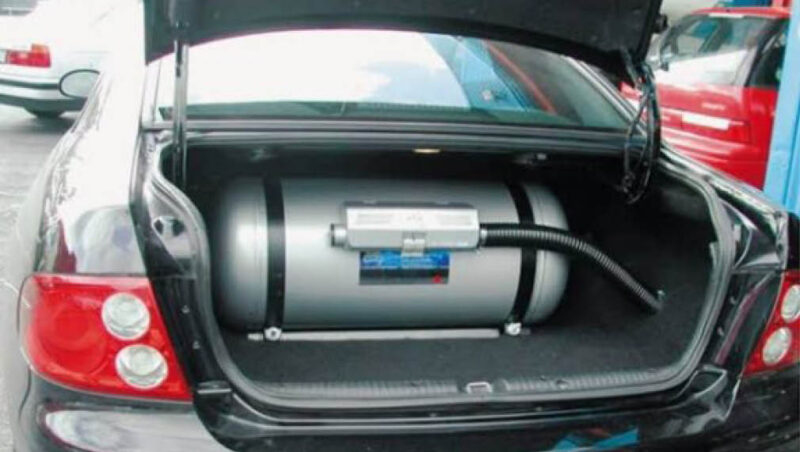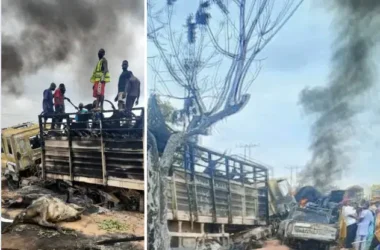Commercial drivers and other stakeholders are urging the federal government to address the growing concerns over the lack of infrastructure and high costs associated with converting vehicles to run on Compressed Natural Gas (CNG).
This comes as Nigeria aims to shift from petrol-powered vehicles to CNG in order to provide a cheaper and more sustainable alternative amidst skyrocketing fuel prices.
The government has been pushing the Presidential Initiative on Compressed Natural Gas (Pi-CNG), which is expected to ease the financial burden caused by the removal of petrol subsidies.
However, despite these efforts, many drivers and potential users remain frustrated by the slow pace of the initiative’s implementation, citing the limited number of CNG conversion centers and refueling stations across the country.
On October 18, 2024, the government launched the latest phase of its CNG initiative in Uyo, Akwa Ibom State, under the banner of the “Conversion Incentive Programme.”
During the launch, the Programme Director, Michael Oluwagbemi, represented by Tosin Coker, emphasized that the project was designed to provide financial relief to motorists by facilitating the transition to CNG.
The government aims to convert one million petrol-powered vehicles to CNG by 2027. However, these efforts appear to be hindered by a lack of widespread infrastructure and accessibility for both conversion and refueling.
In many states, the situation remains dire. Kano, for example, has yet to establish a single CNG conversion center, despite being a key commercial hub with a high volume of vehicles.
According to Adamu Yakubu Mai Karfi, a local transport union leader who spoke with DAILYTRUST, drivers in Kano are puzzled by the lack of progress, given the potential relief that CNG could bring in the face of rising fuel prices.
While a site at NNPC Mega Station in Hotoro has been earmarked for a conversion center, operations have yet to begin.
Similarly, in Borno and Yobe states, stakeholders such as the Nigerian Association of Road Transport Owners (NARTO) have expressed disappointment over the absence of CNG centers for converting large vehicles, including trucks.
As NARTO Chairman Mohammed Isa Nyakire pointed out, “We expect that the North East should be among the first to have a center.”
In other parts of the country, there is cautious optimism. In Kogi State, the federal government recently rolled out the Pi-CNG project in Lokoja with the introduction of 10 CNG-powered buses. However, outside of Lokoja, there are no CNG refueling stations, leaving residents like Usman Abdu concerned about how long it will take to expand the initiative across the state.
The high cost of vehicle conversion is another barrier. In Ibadan, Oyo State, where three conversion centers are operational, commercial drivers lament the expense of converting their vehicles, which costs between N1.2 million and N1.5 million.
Although some drivers, like Wole Jayeola, have already made the switch and are seeing benefits, many others are calling on the government to provide subsidies to make the process more affordable.
Efforts are underway in some states to address these issues. In Ekiti State, 15 buses have been converted and seven conversion centers launched to support the CNG transition.
Meanwhile, Akwa Ibom is awaiting the establishment of refueling stations before it can launch its planned CNG bus program, as Governor Umo Eno stated, “It does not make sense to buy CNG buses that’ll not have refilling depots.”
Despite these developments, concerns remain widespread. In states like Plateau and Benue, conversion centers are still non-existent, and many motorists are hesitant to embrace CNG due to the fear of potential price increases in the future.
As a commercial driver in Maiduguri, Inusa Salihu, expressed, “We all need a substitute for petrol, but how are we sure that the price of CNG will not go high?”
Industry experts, such as Abiola Lawal, Managing Director of Eterna Plc, stress the importance of large-scale investment in gas infrastructure to ensure the success of the Pi-CNG initiative. “$20 billion is required annually to fund gas infrastructure,” he said, underscoring the need for collaboration between the government and private investors.










